BUSINESS: Thai Bangchak expands to Norway
INTERNATIONAL:
Indonesia and Sweden launch Healthcare platform
COMMUNITY: Norwegian People’s Aid celebrate 27 years in Laos


BUSINESS: Thai Bangchak expands to Norway
INTERNATIONAL:
Indonesia and Sweden launch Healthcare platform
COMMUNITY: Norwegian People’s Aid celebrate 27 years in Laos


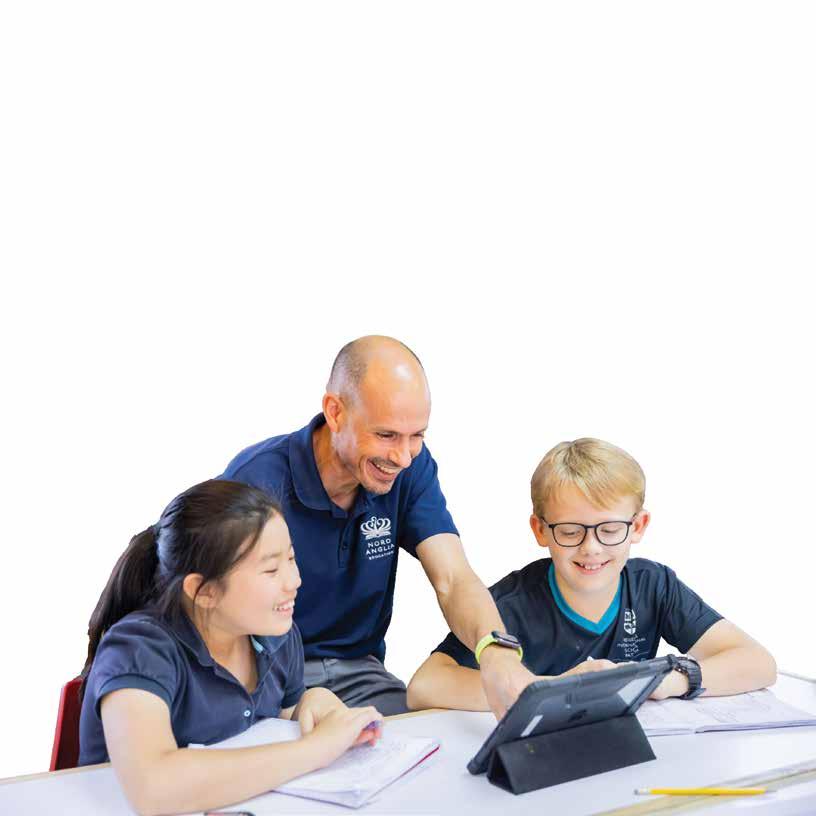
At Regents International School Pattaya, we’ll help your child devlop the knowledge, creativity and resilience they’ll need to succeedwhatever they choose to be or do in life.
Find out how your child can make their mark on the world and how we’ll make every moment of their education count.
Contact admissions@regents-pattaya.co.th or scan the QR code for a campus visit and learn more about our school.

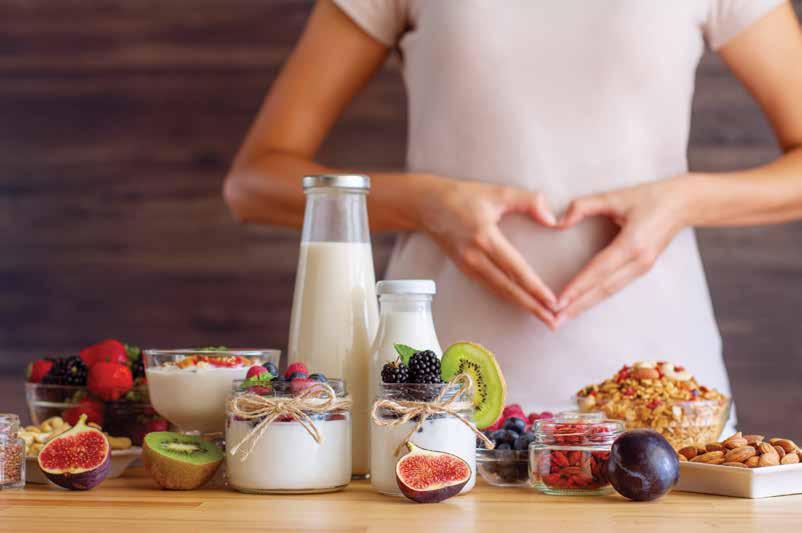






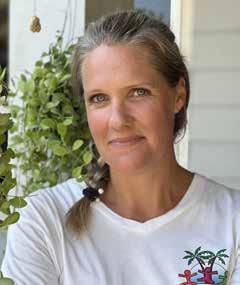

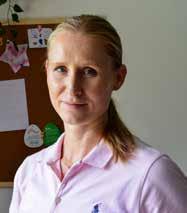

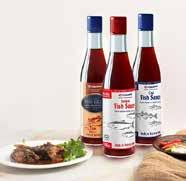
11 TikTok doesn’t follow Danish law
14 AstraZeneca admits covid-19 vaccine can cause blood clots
32 H&M has not left Myanmar
34 Solutions for foreign berry-pickers
39 Mamma Mia returns to China
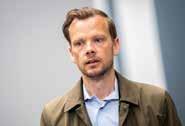

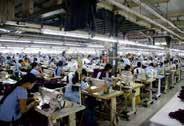

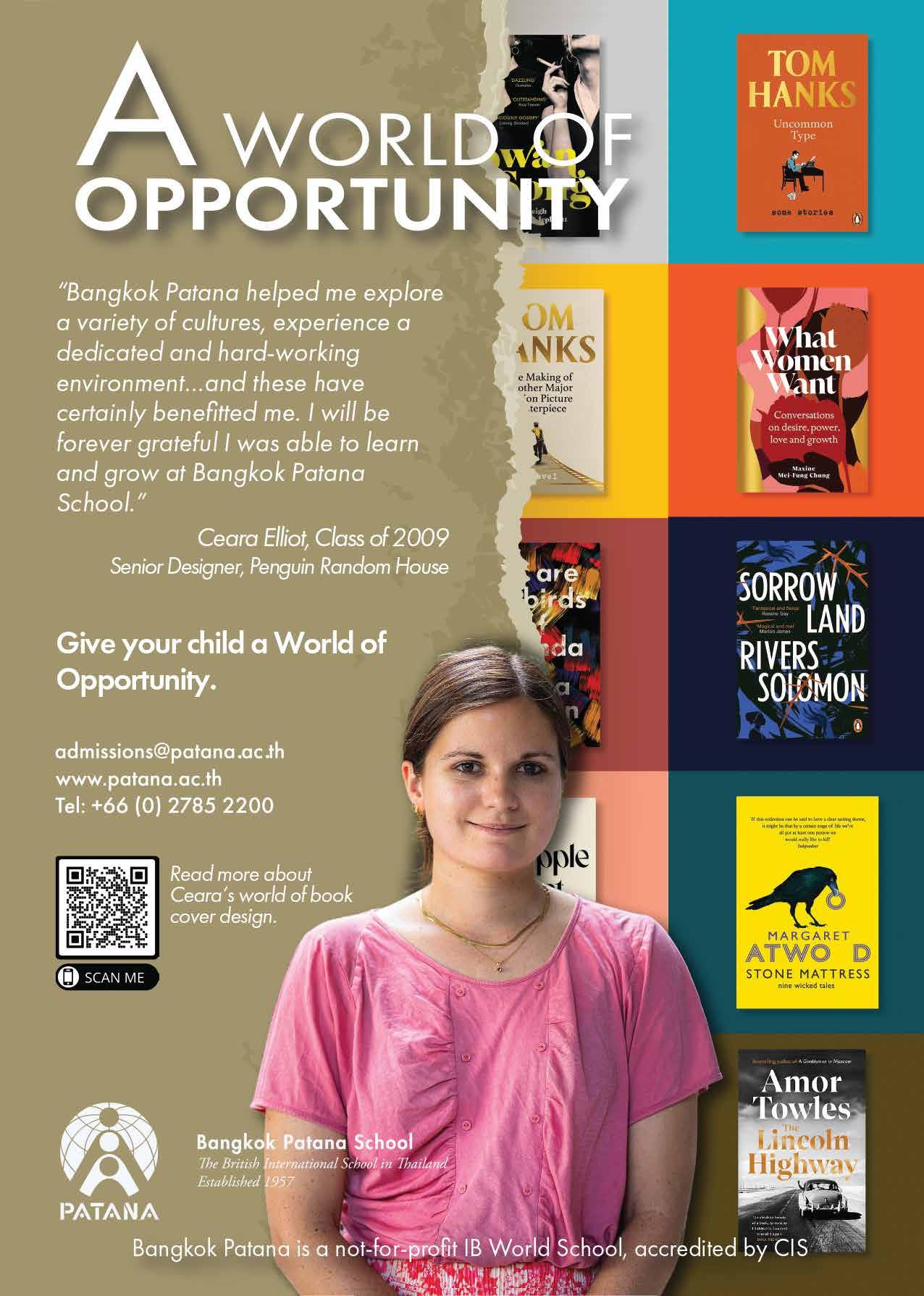
European companies feel increasingly uncomfortable about China both as an international player and as an investment country. If they have existing investments in China, more and more are adopting a “China +1” strategy.
ASEAN on the other hand, especially Vietnam, Thailand, Malaysia, Indonesia, offer good alternatives. With lower labor costs, political stability, and favorable investment policies, these nations provide attractive alternatives to China for Nordic companies seeking to expand their operations.
Part of their worries is the regulatory uncertainty in China, including unclear regulations and practices favoring domestic competitors. Investing in ASEAN countries with more transparent and stable regulatory environments can help mitigate such risks and ensure smoother business operations.
The COVID-19 pandemic highlighted the importance of diversifying supply chains to minimize disruptions. A “China Plus 1” strategy can enhance resilience against future supply chain disruptions.
As ASEAN countries continue to experience economic growth and development, gaining a presence here will furthermore enable them to tap into these growing consumer markets.
Compared to China, ASEAN countries generally exhibit greater geopolitical stability, reducing the risk of being caught in geopolitical tensions or conflicts. This stability enhances the attractiveness of ASEAN as an investment destination for Nordic companies seeking long-term growth.
Finally, if support for Sustainable Development Goals (SDGs) is something the investing company values, then many ASEAN countries are actively pursuing sustainable development initiatives, offering opportunities for foreign companies to contribute to environmental and social progress as well.
In short, by tapping into the economic opportunities, mitigating regulatory risks, and leveraging the strategic advantages offered by ASEAN nations, adopting a “China +1” strategy will enable Nordic companies to enhance their competitiveness and resilience in an increasingly dynamic global business environment.
For a Nordic company that does not yet have any investments in China, all the above is a compelling argument to consider expanding their presence in ASEAN countries as part of their strategic growth approach.
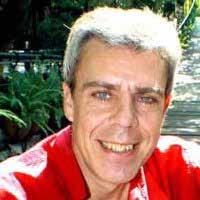
ScandAsia is a printed magazine and online media covering the people and businesses of Denmark, Sweden, Norway, Finland living and working in China, Hong Kong, Thailand, Malaysia, Singapore, Indonesia, Philippines, Vietnam, Cambodia, Laos and Myanmar.
Who should subscribe:
ScandAsia subscribers are typically Nordic expats and companies from the Nordic countries living in and active in Asia. Another group of subscribers are Nordic people living in the Nordic countries who subscribe to ScandAsia for personal or business reasons. We also have many Asian subscribers, who for a wide range of reasons are following the activities of the Nordic expats and companies via a subscription to ScandAsia.
The ScandAsia magazine is produced every month and distributed to all print version subscribers via postal services and to all eMagazine subscribers via email. Subscribing to the eMagazine is FREE - simply sign up on the ScandAsia.com website.
Become a ScandAsia user/ get free digital ScandAsia magazine or paid subscription via www.scandasia.com!

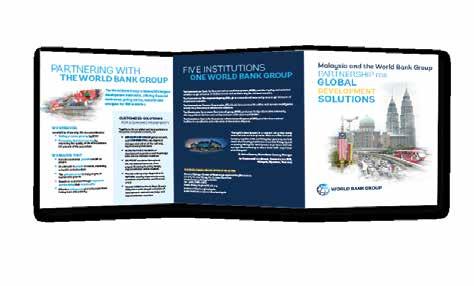
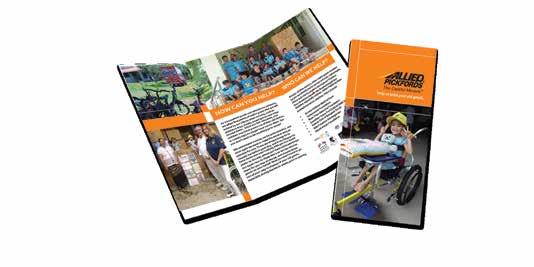


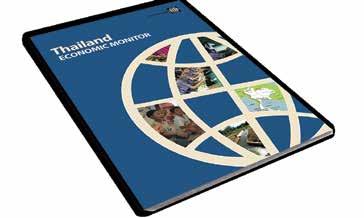



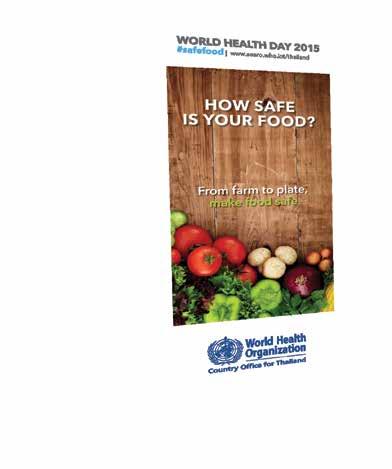
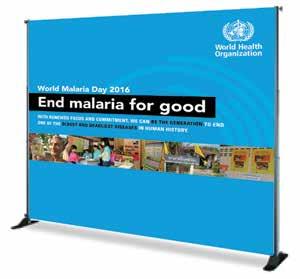

The energy conglomerate Bangchak Corporation, which is listed on the Stock Exchange of Thailand, continues to expand its presence in the world. It was released recently that the conglomerate is developing a new production facility in the North Sea.
The new investment has been made through the Bangchak Corporation’s subsidiary Okea ASA. Okea ASA is a Norway-based oil and gas drilling company.
The new production facility is going to be build at the off-shore Brasse Petroleum Field in the North Sea. Okea ASA hold 39.2% of the shares in the Brasse project.
The Education and Science Counselor at the Embassy of Finland in China, Olli Suominen, spoke of the importance of innovation at the Beijing International Youth Innovation and Development Forum on Sunday, 28 April 2024.
“Everyone can and should be creative and innovative both at work and in everyday life,” he said.
His primary point being that one doesn’t have to be a genius to be innovative. He empathizes with the fact that the Finnish school system has incorporated critical thinking and innovation skills as a part of their mandatory curriculum.
The event had multiple speakers highlighting the importance of the integration of industries, education and research.
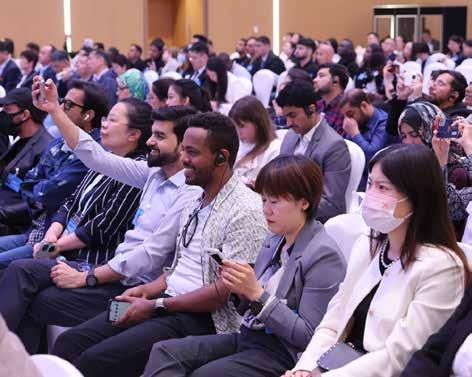
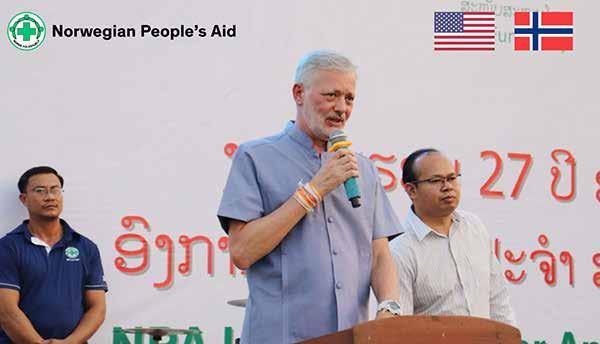
The non-governmental organization Norwegian People’s Aid (NPA) is celebrating 27 years of surveilling unexploded ordnances (UXO) and clearing explosives in Laos. The NPA Country
Director, Aubrey Sutherland listed the organization’s achievements in a speech. He mentioned that the organization has surveyed 600 km2 of land, confirmed 282 km2 of contaminated hazardous areas, cleared 45
km2 of hazardous areas, responded to over 5,600 roving tasks as a response to local villagers’ reports as well as destroying over 153,000 explosive ordnance items.
The organization has allegedly created safer living conditions and pushed socio-economic development for 233,000 women, men, girls and boys in the provinces where NPA operates. NPA started working in Laos in 1997, where they started providing technical advisory support to UXO Laos. When the organization started its operations in the country it had 64 staff members, and 27 years later over 1000 workers are employed for NPA in Laos. Donors of the organization include the governments of Norway and the United States and NRK, FCDO, Fagforbundet and Sida.

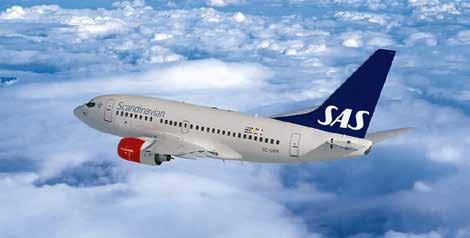
The European sanctions against Russia have caused an unexpected consequence for the Scandinavian airlines, known as SAS, as Chinese aviation companies have eyed a gap in the market. European flights to China have dropped
Malaysian airlines introduce a carbon levy collection, which will come into effect when the Malaysian Aviation Commission (MAVCOM) gives their final approval. According to the Malaysian minister of Transport Anthony Loke, the commission needs to adjust the MAVCOM 2018 regulations in order for the carbon levy to be imposed. The money collected by the airlines can then be either be used to buy sustainable aviation fuel (SAF) or pay credit to balance out the airlines carbon emissions.
Malaysia is the first Asian country to introduce a carbon levy for flights, but Sweden, Denmark,
considerably low compared to the pre-pandemic market. At the same time the amount of Chinese flights to Europe have increased.
This is partially due to Russia closing its air space for European airplanes as a consequence of the
European Union’s sanctions on Russia. European airlines such as SAS therefore have to fly a detour south of Russia, which skews global competition. According to SAS, their airplane from Copenhagen to Shanghai is in the air for 9.5 hours and uses 55.804 kilograms of fuel, whereas the route around Russia takes 12 hours and increases the amount of fuel used by around 30 percent.
SAS says the long flights from Europe to China are an important part of their business, but the company has not been able to achieve the pre-pandemic success in the region. Today, Shanghai is the only SAS destination in China and the company’s activities on the Chinese routes have decreased by 73 percent compared to 2019.
the Netherlands and South Africa have already imposed similar levies. The levy is an attempt to move towards the Carbon Offsetting and
Reduction Scheme for International Aviation (CORSIA), which is an transnational agreement to reduce emissions from airplanes.
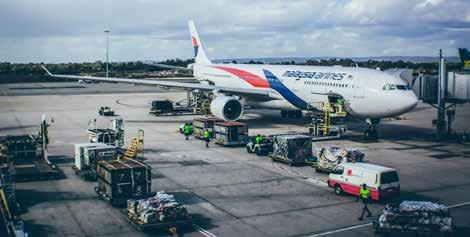
The Danish government has decided to make a law issuing that the different social media platforms need the parent consent before children under the age of 15 can create a profile on their platform. Google has adjusted so they follow the Danish law. Chinese TikTok and American Snapchat have not.
The law was made after a Danish documentary was published. The documentary was called “Home alone online”, and was about the traumatic things Danish teenagers and children see online, especially on social media platforms. Earlier it was possible for children down to the age of 13 to create profiles on social media platforms. Now it is only possible in Denmark if you are 15, and
if a child wishes to create a profile when they are younger. Denmark wants the platforms to ask for the parents’ consent.
The lack of adjustment from the Chinese platform TikTok and the American platform Snapchat has made multiple Danish politicians and experts criticize the platforms:
“The social media platforms need to respect the decision made by the democratically elected when it comes to protecting their minors from risks,” says Ask Hesby, director in the organization Digital Responsibility in Denmark.
TikTok and Snapchat wrote to the Danish media Politiken, that they are operating according to GDPR rules in Europe.
This lack of willingness from
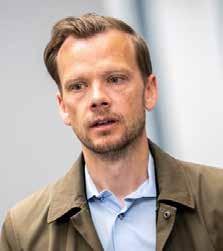
the social media has made the Danish politician Lisbeth Bech-Nielsen state that she will request a meeting with the Danish Minister of Justice, Peter Hummelgaard.
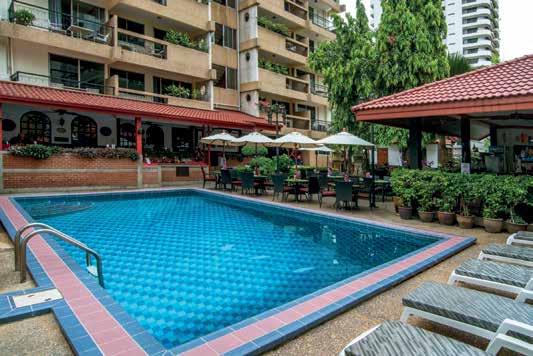
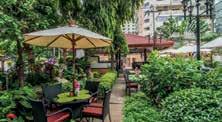

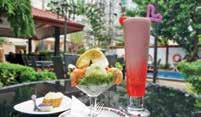

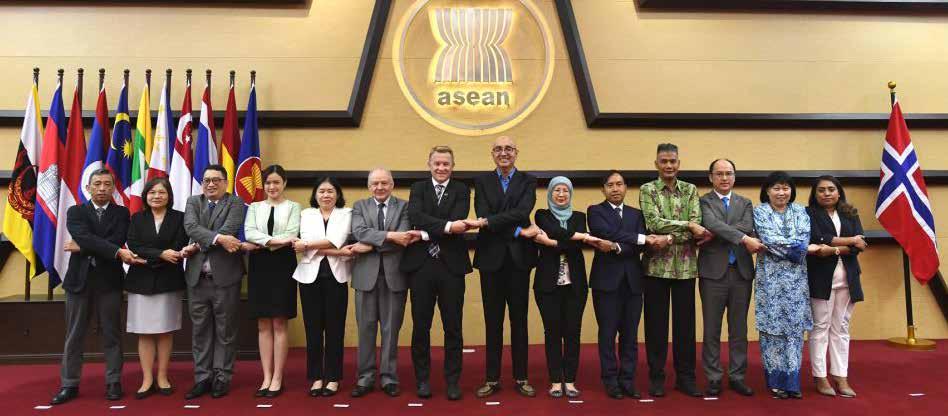
ASEAN and Norway hold the 9th ASEAN-Norway Joint Sectoral Cooperation Committee meeting, also called ANJSCC. The meeting was held at the ASEAN headquarters. Both parties reaffirmed their commitment to their partnership and talked on the potential areas, where the collabora-
tions can be strengthened. Furthermore, Satvinder Singh Deputy Secretary General of ASEAN for Economic Community and Kjell Tormod Pettersen Ambassador of Norway to ASEAN introduced the ASEAN-Norway Partnership on Blue Economy Workshop.The workshop focused on sharing knowledge
in areas of common interest within the blue economy. This included sustainable fisheries, green shipping and ocean planning. The workshop also aimed at exploring a possible partnership with Norway and looking to support the overall development of the blue economy in ASEAN.
The Swedish film titled “sons” received the Best Film Prize in the World category at the 48’th Hong Kong International Film Festival.
The film is by the Swedish director Gustav Möller. The story follows an idealistic prison officer, played by the Danish actress Sidse Babett Knudsen, who is faced with ethical dilemmas when a man from her past gets transferred to the prison where she works.

The fluctuating price of coffee on the global market stresses Vietnamese coffee farmers and increases their risk of psychological issues. This is the result of a new international study by a Danish professor and his international team. Finn Tarp is professor at Copenhagen University and head of the development economics research group DERG.
The study showed that the unstable prices of coffee lowers the farmers expectations of their future well-being, increases their mental load and alcohol consumption. They sleep worse, feel more lonely, are depressed, can’t focus, and feel more anxious. The study also concluded that not only poverty, but also the potential of poverty, has a negative effect on the mental wellbeing
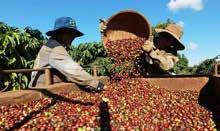
of farmers in so-called low income countries.
The researchers believe that the results can be transferred to not only Vietnam, but also other low income and middle income countries, where the population is very dependent on agricultural export. The study points toward the need for a more effective social safety net to protect local farmers against fluctuating prices on the global market. According to Finn Tarp, the increase in socio-economic costs of
Bangkok Patana will be offering the IB Career-related Programme (IBCP) alongside the IB Diploma Programme (IBDP) starting in August 2024. This addition enriches the offering for Years 12 and 13, enabling students to delve deeply into subjects they are passionate about. The inaugural IBCP cohort will focus on a specialised Art and Design pathway. This marks the beginning of a broader range of pathways and specialisations the school aims to introduce through the IBCP in the future.
mental illnesses is rightfully raising international concerns. He says that this is the reason why it is important to examine the underlying reasons of mental illnesses and how to combat it effectively economically, politically and in regards to social efforts. Furthermore, mental illnesses are actually more prevalent in less wealthy countries, and 80 percent of the world’s depressive disorders occur in low income or middle income countries.
Farming coffee can be challenging, when prices are changing, because the trees grow for more than 50 years, and it is expensive to cut down the trees in order to produce other crops. This means that the coffee farmers are not able to farm other crops, when the market value of coffee decreases.
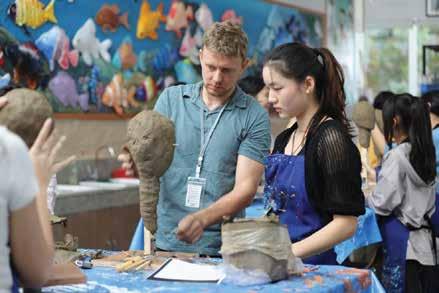
In accepting the school’s application, the IBO highlighted the school community’s knowledge and enthusiasm for this programme, which complements our robust Senior Studies provision. Secondary Principal Matt Seddon explains in detail here.

We are very keen to continue building links to the world of Art and Design, either in Thailand or further afield to enhance our programme. If you know of any artists, galleries, or schools of design that may be suitable partners, please do contact Andrew Roff at anro@patana.ac.th.
admissions@patana.ac.th www.patana.ac.th Tel: +66 (0) 2785 2200
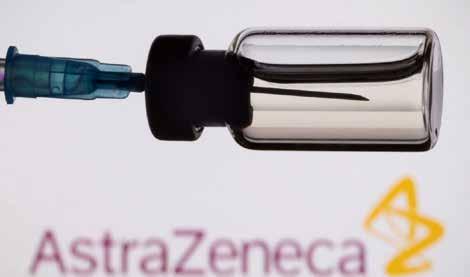
AstraZeneca has admitted in court that their Covid-19 vaccine can cause rare side effects such as blood clots and low
platelet count. This was the result of a lawsuit, which was filed in the UK. AstraZeneca admitted that their vaccine could cause Thrombosis
with Thrombocytopenia Syndrome (TTS) in very rare cases.
The lawsuit is a so-called class action lawsuit, where a group of people go together to build a case. The lawsuit claims that the vaccine has led to death and severe injuries and seeks damages up to £100 million for around 50 victims.
The vaccine produced by the British and Swedish company was widely distributed in the Southeast Asian countries. Thailand received at least 26 million doses, Malaysia received 14 million doses and Indonesia received at least 3,5 million doses. It was administered in over 150 countries worldwide during the Covid-19 pandemic.
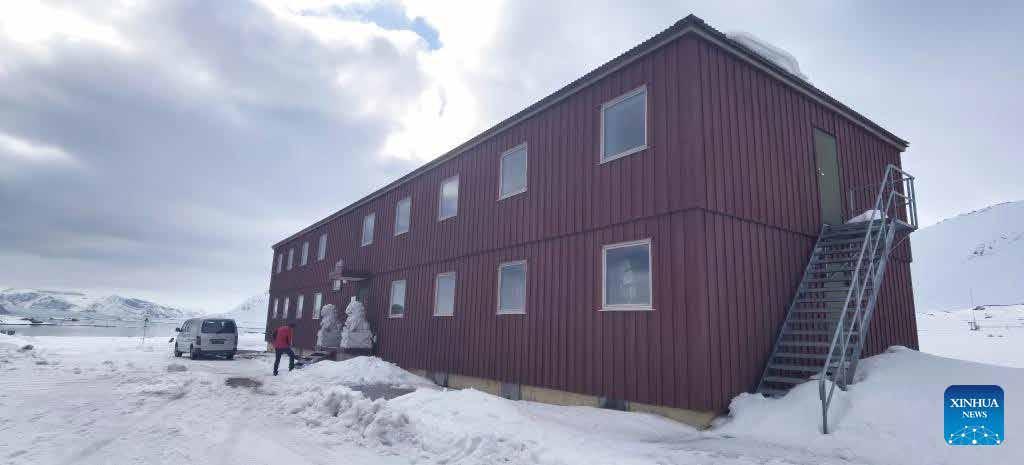
Three Chinese researchers arrived in Svalbard, Norway, on 29 April 2024. They will work at China’s Yellow River Station conducting different surveys across the region throughout the year.
The Yellow River Station was established in 2004 and is China’s
first Arctic research station. The expeditions from the station have slowly resumed to a post-pandemic amount since last July.The main fields that the Yellow River Station focuses on are glaciology, terrestrial and marine ecology, and space physics.
The three researchers who just
arrived are just a tiny part, compared to how many researchers will pass through the Station during this year. It is expected, according to Hu Zhengyi, head of the Yellow River Station, that the station will host over 50 researchers this year.
Finnair has plans to add extra flights to Phuket in Thailand this winter. The flights will fly from Helsinki to Phuket six times a week from December 2024. This winter, the Finnish airline had four weekly routes.
The flights have also been used to make connecting flights available from other European airports, including London Heathrow, Manchester, Edinburgh and Dublin.
Finnair is strengthening its presence in Thailand, with the airline already having two daily routes from Helsinki to Bangkok.
The planes will fly to Thailand between Monday and Wednesday and again from Friday to Sunday. The flights to Helsinki will fly from Monday to Thursday and on the weekends.
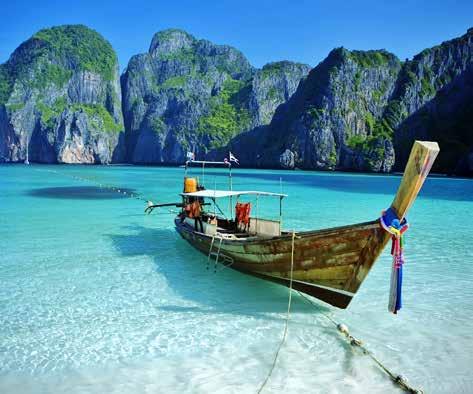
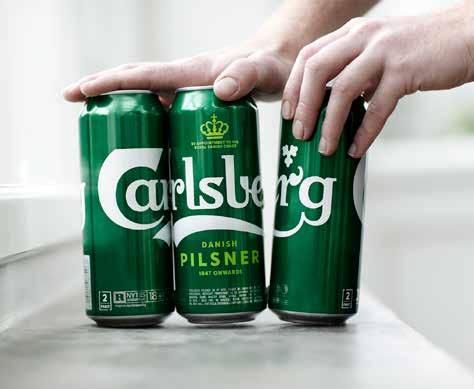
Carlsberg reported a 4,4 percent increase in revenue for the first quarter of 2024. The revenue was especially boosted by the high sales of name brand beers. Sales of Carlsbergs namesake brands grew 15 percent, driven by China, Vietnam, India and Ukraine.
According to the company’s CEO Jacob Aarup-Andersen, Carlsberg is very satisfied with the growth of their premium portfolio and the revenue growth in Asia, which are both strategic areas.
Sales have been lower in recent years, since Moscow took control of the Danish company’s Russian production, after Carlsberg had decided to leave Russia as a response to the war in Ukraine. This reportedly led to a loss of over 40 billion Danish crowns in 2023.
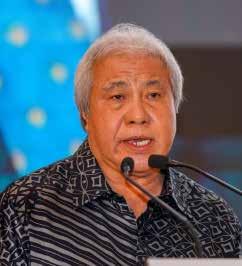
Malaysia’s Deputy Premier Datuk Amar Awang Tengah Ali Hasan has invited the Swedish business community to advance into the Sarawak forestry, forest plantation and woodbased industries. Awang Tengah said this at a networking event with Business Sweden, which is a company promoting the interests of Swedish companies in the global market.
He underlines that the Malaysian region Sarawak is moving towards a more sustainable woodbased industry. This among other initiatives entails using materials from forest plantations to produce en -
gineered wood, biomass fuels, pulp and paper.
Furthermore, he highlights the geographical benefits of the region, as it is located near markets with high growth rates like China, India, Korea, Japan and Australia.
The Deputy Premier has led a Sarawak delegation to Sweden on a two-day visit to Sweden, which began last Thursday. According to a press release, Business Sweden is also interested in the Sarawak region, especially in areas of innovation, digital application in forest management, forest industries for wood structure constructions, and human capital development.
The Finnish start-up RiverRecycle has now collected 2.5 million kilograms of waste in an effort to fight plastic pollution. This is a significant acceleration in the company’s operations, as the second million kilograms was collected in only five months, whereas the first million kilograms was collected in the span of multiple years. RiverRecycle has operations in Indonesia, the Philippines, Bangladesh, India and Ghana. The upscaling of the collection of waste is now expected to reach over three million kilograms per year. As of today, the company is the world’s largest river cleaning company.
Currently RiverRecycle overseas five operational sites and 19 projects are underway.The company uses the collected waste and turns it into recycled materials. Further-
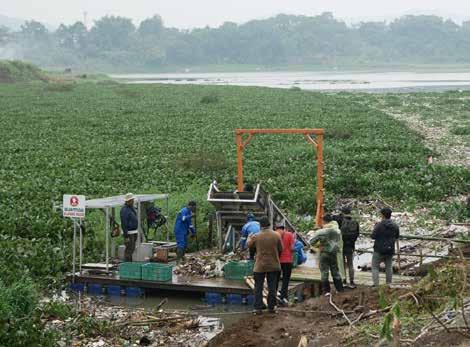
more, the projects are carried out with assistance from local businesses and communities and it has proven
to not be a financial burden on the local municipal budgets.
China plans to send a robotic spacecraft on a round trip to the hidden side of the moon. This is the first of three missions. The spacecraft will carry payloads from a number of countries including Sweden.
The name of the spacecraft in Chang’e-6, named after the Chinese moon goddess. The have been a number of missions since the first Chang’e mission in 2007. Each one making progress in lunar exploration.
The payloads on Chang’e-6 is from Sweden, France, Italy and Pakistan.Typically payloads on spacecrafts references to the part of the spacecraft that is in charge of producing data and then transmitting it back to earth.
If everything goes as planned, then the spacecraft will return with rocks and soil samples from the part of the moon facing away from the earth. China’s long term plan is that
the Chang’e-6 will pave way for an inaugural Chinese crewed landing and base on the lunar south pole. China aim to place astronauts on the moon by 2030.
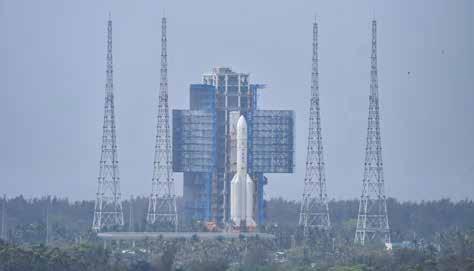
Fish sauce is currently mostly produced in Asia, where it is widely used. Now, one manufacturer in Norway, Noumami AS,
has taken up the challenge and started producing fish sauce based on Norwegian Salmon, Norwegian Cod and Herring.

Although there is not a significant trend currently, this development may affect Thailand’s fish sauce business. In the first two months of 2024, the value of Thai fish sauce exports to Norway decreased by 30%, amounting to 1.11 million THB.
According to the website of Noumami, the production method is part of what sets the Norwegian fish sauce apart. The fish that goes into the production is salted with Norwegian sea salt and undergoes a natural fermentation that lasts 8-14 months. This slow and highly regulated decomposition of the fish makes a golden sauce.
The market potential is enormous, states Nofima, a Norwegian food research institute that conducts research and development for the aquaculture industry. The institute suggests that what is today Herring offcuts could potentially become fish sauces for gourmets.
Swedish-born Bertil Lintner is a long-time expert in Myanmar and the ongoing war that plays out in the region. Even though the resistance groups are winning ground in recent months, Bertil Lintner is not optimistic about peace in the region.
The war in Myanmar is still raging on, as it has in the last 70 years. The resistance groups are winning ground in the western state of Rakhine, which has not gone unnoticed by newspapers worldwide. Some speculate, that the resistance groups may finally have a chance to overthrow the military junta and the hope rises anew, that the decade-long conflict can finally simmer-down. But the Swedish Myanmar-expert Bertil Lintner does not believe the newest developments will significantly change the situation in Myanmar.
“The resistance is winning ground, but they are not winning the war. None of the resistance groups are strong enough to defeat the military.The only way to win is if the military cracks from within. And if it does, there will be an even nastier civil war. That is why I am not optimistic about the future,” Bertil Lintner says.
So far there haven’t been signs of splits in the military except a few dissertations. The military keeps a firm grip on the center of the country, the Burmese heartland, whereas its control of the peripheries is slipping.
From Bertil Lintner’s home near Chiang Mai in Northern Thailand, he writes books on the 70-year-old war between the military junta and ethnic groups, which started as a democratic uprising, but now has turned violent. Behind him several brown bookcases display the
depth of his knowledge on the Southeast Asian country. Stacks of books, old archive files and newspaper cutouts cover his desk and parts of the floor, indicating the creation of his newest book “The Golden Land Ablaze” which will be published in September 2024, where he will transport the reader all the way back to colonial times. He has worked from Thailand, as he was banned from his country of expertise from 1981 to 2012 and then again after the military coup in 2021.
According to Bertil Lintner, the goals of the resistance groups and more than 20 different rebel armies are too different for them to win the war. They have never been unified, and even though there is some communication between different armed groups there is no coordination. There is no centralized supreme command, mapping out military strategies. Instead, there is a spread-out resistance working towards overthrowing the government. Furthermore, the towns sometimes clash over taxation-issues and control as they are essentially all still working towards their goals of defending their own communities.

The resistance is winning ground, but they are not winning the war.
Millions of dollars are wasted on meaningless peace processes, whereas the organizations that are actually making a difference are only getting peanuts.
“An old Burmese saying goes like this: it is like playing the violin for a water buffalo. It means they don’t even understand what is happening. The different groups don’t know peace,” Bertil Lintner says.
In 1977 Bertil Lintner set his feet on Burmese ground for the first time. On a road in downtown Rangoon, outside the Strand Hotel he was approached by a young man asking if he had whiskey or cigarettes – a common way for foreigners to exchange money to local currency at the time. But Bertil had already traded in his duty-freebought goods for cash in the taxi from the airport, so he dismissed the young man.
The man asked if he had other things to sell like ballpoint pens or if he wanted to exchange money. Having just been in India for a couple of months and being used to crowded streets with a plethora of both sellers and hustlers, Bertil dismissed the man with short nos. “Please enjoy your stay sir, and thank you anyway,” the young man said. Bertil was so shocked at this young man’s politeness that he asked him to drink a cup of coffee with him.
They went to a coffee shop in a hotel and sat there the whole afternoon. The man told him the struggles of his home country, the dictatorship, and the militant suppression of ethnic groups. He told him about his friends who were arrested, in prison, had joined the armed struggles or were tortured. The conversation changed the young Swedes image of the country he was visiting in an instance.
“I thought that there is something sinister under this nice, structured façade of golden temples and smiling people,” Bertil Lintner says, as he recollects that fateful day almost 50 years ago.
“Their only common goal is to get rid of the military junta. But what if they succeed? It would be chaos,” Bertil Lintner says.
He takes a piece of Swedish snus, rolls it to a small ball with his fingers and places it under his upper lip, before he starts mapping out Myanmar’s ethnic composition.
According to the official policy of the ethnic groups, they would like to build a Myanmar federation split into the seven ethnic states: Mon, Karen, Shan, Kachin, Chin, Rakhine, Kayah, and Bamar. But in many of the states there is no rule of one singular ethnic group. There are large communities of other ethnicities in each of the states. For example, the Kachins aren’t even the majority in Kachin state and the Shah’s only make out 60 percent of the population in Shah state.
“How do you sort that out? Are we going to carve up the states into even smaller states? These are the issues that should be talked about. These are the situations we need workable solutions for if we want to impact the region,” says Bertil Lintner.
Another reason for the peace process being dragged out is the different groups’ lack of a wish for compromise.
And even though a lot has changed in the last 50 years, one thing hasn’t as the civilian population of Myanmar is still on the losing end of one of the longest ongoing conflicts worldwide. 70 years of crisis has taken its toll on the lives of civilians. Inflation has spiraled out of control, making food and necessities much more expensive. The same goes for real estate, as people with money in the conflict areas are buying property to have a safe retreat in areas such as Rangoon if things go bad.
In recent weeks there has been an additional wave of refugees from Myanmar, as the military junta rolled out mandatory conscription. This has led to young men fleeing the country to Bangladesh and Thailand, in order to avoid being enlisted in the army. Previously the army was on a volunteer basis, but now, not enough soldiers are wanting to join. The biggest motivating factor for joining the army are the benefits and access to goods like special schooling systems and hospitals. Many soldiers are village boys, who eye an opportunity to become someone of importance and do something meaningful.
Furthermore, there are hundreds of thousands of
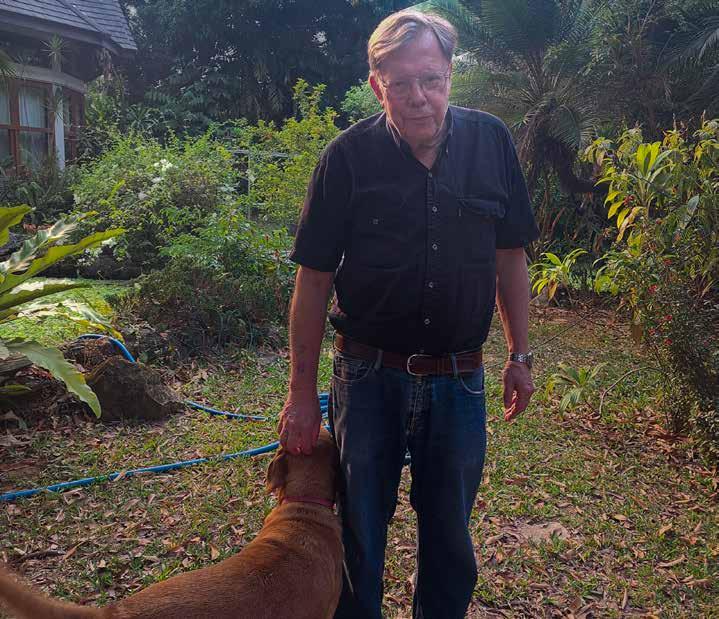
internally displaced people, who are refugees inside their own country. It is estimated that a third of the population in Myanmar are in need of humanitarian aid. But even though the war is gruesome, and many are affected, the international media in general isn’t as focused on the war in Myanmar as it is on other crises worldwide.
“I think Burma is too remote and too complicated to generate general interest.There are too many different groups and strange names that no-one can pronounce. In terms of attention from the international community, they cannot compete with Ukraine or Gaza, even though the war is easily just as horribly as in Ukraine,” Bertil Lintner says.
Bertil Lintner believes that the problem with Myanmar is that no one has found out how to rule it. They haven’t found a formula that fits, and none of the attempts at peace have worked so far. According to Bertil Lintner the western nations’ inability to create peace is a consequence of them not knowing what they are doing, and a lack of historical knowledge.
“They just come in and they rush with models from Costa Rica, Colombia or Burkina Faso. They think it will work in Burma. And of course it doesn’t. Many western countries think they can sit down and talk to each other, which is fine. But if it was that easy, there wouldn’t have been a war in Burma for 70 years,” Bertil Lintner says.
The first peace plans in Burma were in the early 50’s. Then again in 1963, the 1970’s and the 1980’s.
“My question is, why are the peacemakers even a part of it? You need to look at history and realize that something is going wrong. Why should they be involved at all, they don’t have anything to do with it. It is a neocolonial attitude,” Bertil Lintner says.
According to Bertil Lintner, other countries should contribute to civil society organizations, NGO’s and the media in Myanmar, if they want to get involved.
“Millions of dollars are wasted on meaningless peace processes, whereas the organizations that are actually making a difference are only getting peanuts. They are struggling to survive and in desperate need of financial support,” Bertil Lintner says.
In Denmark she went through three doctors as she was giving birth. In Thailand her doctor stayed with her through the entire experience. This is Charlotte Christensen’s story of the difference between giving birth in Thailand and Denmark
By Lærke KobberupCharlotte Christensen is 40 years old and has three children. Two of them were born in Denmark, but the last was born in Bangkok, Thailand. Charlotte Christensen had a very good experience giving birth in Thailand, which has made her reflect on her experiences in Denmark, and in general the Danish way of viewing childbirth. While giving birth in Thailand she got to see the differences that appear. Differences in how the hospital system works and how the different culture plays a factor on how to handle a situation as crucial and tough as childbirth.
To be a family abroad was always in the cards
Currently Charlotte Christensen is employed as a security advisor for the Danish Embassy in Bangkok. This is however not her first time stationed abroad. Due to her education as a language officer, she has been stationed in various countries, and the life abroad with her family was something she and her husband both wanted.
She was working for the Danish Ministry of Foreign Affairs in Copenhagen when the option for a job as a security advisor in Bangkok showed up. She hesitated a bit more than she expected when the opportunity appeared:
“I was a mom of two children at that point. That just makes the world a lot more dangerous than before,” she explains.
Moving to a new country with two young children was a big decision. And in the beginning Charlotte and her husband agreed to mentally prepare to be in Bangkok for a year. However, they found a nice apartment, the children were in great institutions, and though it took a while to adjust, Charlotte started to see all the amazing things Bangkok had to offer.
So, they decided to stay longer than the initial oneyear limit, and eventually the thought of a third child appeared.
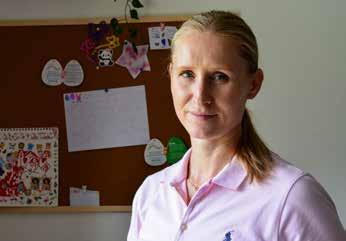
The Thai system when you’re pregnant is very different from the Danish model, Charlotte Christensen quickly discovered. In Denmark, partly due to the fact that the Danish system has a notorious reputation of overworking their nurses and doctors, you take the guidance you can get and try your best not to stress the personnel further.
In Thailand, where many hospitals are in the private sector, you get a very different treatment.
“I was offered all these different packages as to how I wanted my birth handled. Did I want skin to skin, did I want the baby to be washed first,” Charlotte explains.
A very different experience than in Denmark.
One of the most important things in the Thai system, Charlotte Christensen underlines, is to find a doctor you feel comfortable with, and who speaks English well:
“I spoke to many women in the international community and got recommendations from them”.
Charlotte found a doctor she felt comfortable with, and who immediately said that she would stay with her through her entire labor, which is normal in the Thai hospital system.
“I asked her, what if it takes 20 hours? Because my previous births in Denmark lasted up to 24 hours, and I ended up having three different midwives during the birth. However, my Thai OB convincingly stated that she would
surely be there for me,” Charlotte says and continues “and I know it was because Danish doctors have certain working hours so they don’t work for that much time in a row, where they just organize it differently in the Thai hospitals”.
This put a bit of calmness into Charlotte’s mind in case it would turn into another difficult labor. And it did.
Even though Charlotte Christensen had a strong desire to give birth naturally, the circumstances just weren’t in her favor.
“The doctor and the nurses really tried to make it possible for me. At some point the nurses placed their hands on my belly and started making these yelling noises along with me,” Charlotte says and continues “I was shocked first, but quickly understood that this was their way of assisting me”.
Looking back on it Charlotte Christensen shakes her head at the experience agreeing in the fact that something like that never would have happened in Denmark, but also acknowledging that she actually felt like it gave her strength. That she wasn’t alone in the experience.
“There is a fundamental difference between the Danish way of observing a new mother and the Thai way of doing so,” Charlotte states as she leans forward on the table, unintentionally showing how this part of the conversation is important to her.
I was getting praise just because I had given birth. They recognized how that was an achievement in itself, and I needed that.
“In Denmark there is a big focus on the baby, which is good, but in Thailand they also have a lot of focus on the mother. I don’t have to prove or do anything more. I just had a baby. That is achievement enough to earn me some rest and breathing time to comprehend what just happened,” she explains.
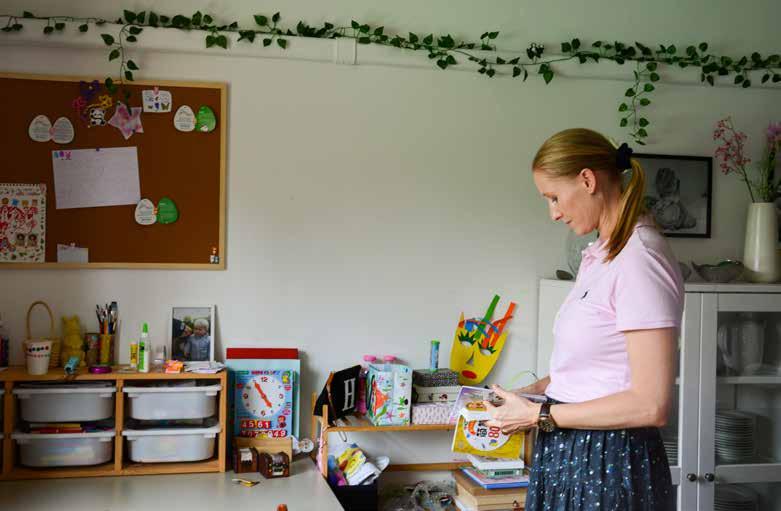
I was offered all these different packages as to how I wanted my birth handled.

She continues by explaining that in the Thai system you stay at the hospital for a couple of days recovering. The nurses take care of the baby, which is brought to you when it needs to be fed, but it sleeps in a different room.
“For me this created space to digest what I had just gone through. A birth can be dramatic and the last one, ending in an emergency c-section, was really dramatic for me and my husband,” she explains.
With her first child Charlotte was almost overwhelmed with the responsibility. Just having experienced her first childbirth and then immediately having responsibility for her child without a moment to breathe. In Bangkok they took a different approach:
“I was getting praise just because I had given birth. They recognized how that was an achievement in itself, and I needed that” she says.
“Giving birth is a big thing, and I think that we have a tendency in Denmark to just expect that we are supposed to just keep going and be able to handle it,” she says.
She continues to explain how it is a well-known phenomenon that new mothers crash on the fourth or fifth day after getting home. Charlotte Christensen did as well after one of her previous births:
“Well of course! The way the setup is at home, you easily forget yourself. You are supposed to be able to leave the hospital 4 hours after giving birth, and suddenly you are.You stagger home with a huge, bleeding wound in an oversized diaper, hormones and adrenaline keep you going. You feel a bit high and capable of anything, and you have people coming over to see the baby. But really you should just stay in bed, and that’s what the setup in Thailand and, I believe, in Asia generally is designed around”.
In Bangkok the nurse brought Charlotte her daughter Filippa and helped her make sure the breastfeeding was working. She stayed for multiple days and felt well taken care of.
“I was so grateful for these nurses and the hospital staff in general, that I almost felt like I needed to give them something in return when I left”, Charlotte says.
It is important for Charlotte Christensen to underline the fact that there surely would have been similar postpartum care initiated in Denmark after an emergency c-section, so it is difficult to compare directly.
“But I do still have the feeling that the whole setup in Thailand is more centered on both mother’s and baby’s well-being and recovery,” she says.
Charlotte Christensen feels as if the Danish society has created these too demanding expectations for new mothers:
“You are supposed to be able to give birth and then sit the next day, or two days after, looking completely normal, drinking coffee with your family and friends”
In that regard, Asian culture appeals more to her. Where the focus isn’t solely on the baby, but that the mother’s well-being is also acknowledged as an important factor.
“We would not have had a third child if we had still been living in Denmark,” she states without hesitation and continues to explain.
There are many factors as to why Charlotte Christensen wanted a third child, but Bangkok was one of the main ones.
“The life we have created for ourselves here just makes it possible,” Charlotte explains.
The surplus of energy her and her husband has in their day to day life in Bangkok was paramount for her wanting another kid.
“If we ever moved back to Denmark I would want to stop working. At least for a while, to make sure that we could maintain this amount of energy and time that we have for each other and the family.”
It really comes down to empathy. Charlotte truly felt that she went through the third pregnancy and birth in the best medical hands she could’ve asked for. She found that the Thai health care system was built on priorities that suited her better. This included what seemed to be a more empathetic mindset.
The Danish jewelry manufacturer and retailer Pandora is scheduled to start building its first factory in Vietnam on 16 May 2024, according to the Danish Embassy in Hanoi. The factory will be worth US$150 million and will be built in the southern Binh Duong province.
Pandora Production Vietnam will be Pandora’s third production facility and the first to be built outside Thailand. The project is expected to create more than 7,000 jobs and produce around 60 million jewelry products every year.
The Pandora group has reviewed 27 countries and finally chose Vietnam to minimize supply
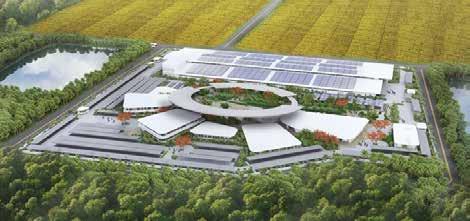
risks, when the factories are all gathered in Thailand. The production in Vietnam will make up around one third of the Danish company’s global productivity.
The factory in Binh Duong
will be built in accordance with the Leadership in Energy and Environmental Design (LEED) standard and be using 100% renewable energy. The two factories in Thailand are also using 100% renewable energy.
There are two relevant cases going on in Varberg, Sweden, at the moment. Both scenarios where parents or guardians brought their children with them to Thailand for a longer amount of
time, and has been fined for it afterwards.
A Swedish couple who brought their children to Thailand has been fined to pay 82,000 SEK. The other case was a guardian, who has
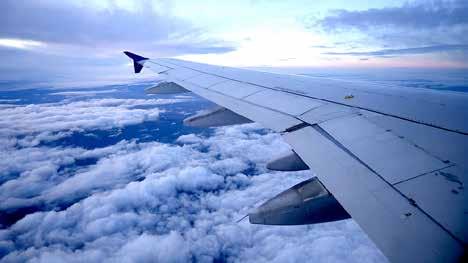
been fined 20,000 SEK, 900 SEK per missed school day. In both cases the fine is for breaking the law on compulsory schooling.
Both cases were allegedly work related and therefore not a so-called “Thaimout”, states the guardians. They had found Swedish schools for the children in Thailand, but the school management in Varberg didn’t believe it to be a good alternative.
The mother from the parent couple express frustration with the law on compulsory schooling in Sweden:
“It depends on how you interpret it, in other municipalities it is different. The law is not adapted to how families live their lives today,” says the mother.
“Thaimout” as a concept has been widely debated. ScandAsia has spoken to the headmaster of a Swedish school in Thailand to get her view on the subject, and to unfold some of the issues.
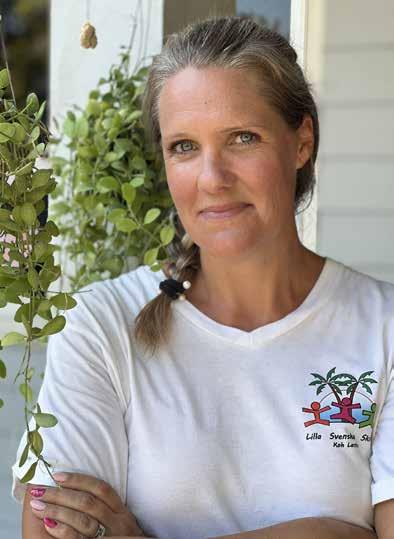
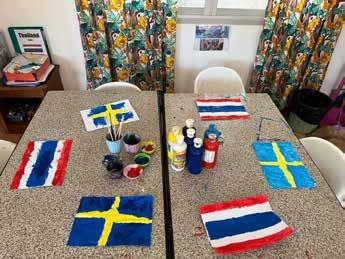
During the last couple of months, a debate on Swedes spending a longer amount of time in Thailand has flared up. The debate has created a nickname for the phenomenon: Thaimout. A combination between the words Thailand and timeout. There are strong opinions on the subject from both sides.
Some of the most common issues with the so-called Thaimout lifestyle is the assumption that the parents want to go on vacation, and just bring their kids. The fear is that this goes against the law of compulsory schooling in Sweden. Some are concerned that in the end this might result in the children not getting a good enough education. The environmental impact is also a concern. Especially when it comes to flying back and forth to Thailand. Finally, some are concerned about how much this phenomenon is costing the Swedish state?
In Thailand there is a school on the small island of Koh Lanta. The school is called The Little Swedish School in Koh Lanta, and even though it might be small seen through Swedish eyes, it is one of the bigger Swedish schools in Thailand. With its more than 350 students each year the school has become a gathering place for Swedes on the island.
The headmaster of The Little Swedish School in Koh Lanta is named Jenny Fors, and Thaimout is in her opinion a completely wrong way of viewing the concept.
The law on compulsory schooling was designed for a time before remote working opened up opportunities for parents and families to choose other ways of life.
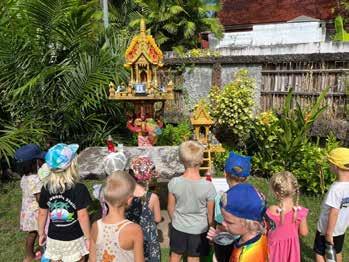
a time before remote working opened up opportunities for parents and families to choose other ways of life,” he writes, as he and his wife work remotely on the island, and their kids attend a Swedish school.
Jenny Fors, the headmaster of The Little Swedish School, acknowledges the importance of good education for the children. However, she believes in the system she is a part of on the island:
“We have teachers certified in Sweden teaching here, we follow the Swedish curriculum, and the classes are smaller, so all the children are seen,” she says.
Thaimout makes it sound like it is a long vacation when that often isn’t the case at all:
“Most of the parents we work with, work remotely while they are here. That is an amazing thing we learned during the pandemic. Their kids can go to our school, which follows the Swedish curriculum, and they can experience a different culture,” she explains. “I really find it hard to see how that is a problem”.
The students are required to follow the curriculum as if they were at school at home.
She empathizes that the school has a big focus on teaching the children about Thai culture.They even have a local language teacher who visits regularly. Jenny Fors sees it as a unique opportunity for both parents and children to experience something different than Sweden.
If a child is registered in Sweden and is six years or older, then the child is under the law of compulsory schooling. This means that they must attend classes and school activities. The child can be granted leave by the school, if it is perceived necessary. The law of compulsory schooling has been used as an argument when arguing against taking your kids abroad for a longer amount of time.
Simon Milton, a Swede who spends part of his time on Koh Lanta in Thailand, finds the law on compulsory schooling outdated. He stated so in the Swedish Media Aftonbladet:
“The law on compulsory schooling was designed for
She firmly believes that they offer good education to their students. When it comes to the law on compulsory schooling, Jenny Fors believes that the decision on whether or not a child should go abroad should be made by the child’s school in Sweden and the parents:
“It is an individual thing, and it should be an individual decision,” she states.
“We do not get any financial support from the Swedish state. It is the parents who pay for their children to go here,” says Jenny Fors, answering the concern on how much the schools abroad are costing the Swedish state.
It is, according to Jenny Fors, only possible to get support from the Swedish state if there are lots of Swedish employed jobs in the area.
“And we don’t have anything like IKEA here on Koh Lanta,” Jenny Fors says with a smile on her face.
For her it is important to remember that spending time in Thailand is an opportunity to let your children see the world. She is a part of the phenomenon herself, as she left Sweden to try living in a different country, and she never regrets it.
“It turned out pretty well. I am still here.” She says and laughs.
She resents that people turn this type of opportunity into something bad. Also, when it comes to the question of the climate impact living abroad. Jenny Foss recognizes the importance of taking care of the climate. However, she underlines that this point, as much else in the debate, should be viewed with more nuance.


Does Bangkok have women like Carrie Bradshaw, an independent woman, desperate searching for the right man, not necessary to marry, but to hang out with and share the bed with? Or are we more like the series “Desperate Housewives”?
By Agneta de BekassySince I’m back with my column “Agneta’s world”, I feel a bit like Carrie Bradshaw, (played by Sarah Jessica Parker) the columnist in the cult Serie “Sex and the City”, not that I ever have been writing about sex, but maybe that would be an idea.
Like the four young women in Sex and the City, recalling to the big apple New York, I might wonder if Bangkok could need a Carrie Bradshaw, an independent woman, desperate searching for the right man, not necessary to marry, but to hang out with and share the bed with? What do you think?
These four ladies, all good looking, all passionate with no inhibitions and with one thing in common, searching for Mr. Right, must they also exist in a city like Bangkok or?
Maybe not, can it be that we find more of the women from the series “Desperate housewives “in Bangkok?
I’m leaning more in that direction.
I’m referring to foreign, single women living and working in the “City of Angels”. Are those women also desperately looking for a normal, decent man? If you ask me, the answer is YES.
No wonder those two Series have become so popular. Recently on Netflix you can follow the sexy Samantha, the prude Charlotte, the dandy-like lawyer Miranda and the main character Carrie from the beginning again. It’s like we never can get enough of those four women desperately searching for men and not hesitating to try them all out in bed, before making any commitments.
Would such a thing be possible in Bangkok? Of course, Bangkok is known for being a city with very liberal, open-minded inhabitants when it comes to sex, but if you, as a Caucasian woman, are looking for a foreign man, not a Thai man, it gets complicated, if not impossible.
Most “farang” men arrive in Bangkok with a family as luggage and the majority of them manage to stay decently faithful, but several of them might have difficulties to not fall for the Thai women with their eyes, big as deer’s and waists like Wasps and not to forget the inviting smiles.
These assets, many of us Caucasians can’t keep up with, we have probably become too independent, too confident and we might have forgotten how to give a
In other words, it’s not easy being a Caucasian, single woman in Bangkok.

bright smile and dress in a ladylike or girly way?
Single men coming from abroad, on the contrary, will not have to wait long until they are surrounded by very female, smiling and willing ladies. How can we beat them? If you ask me, we can’t, it’s just to accept facts.
In other words, it’s not easy being a Caucasian, single woman in Bangkok.
By thinking of all the questions Carrie deals with in her column, I can’t help thinking, maybe her kind of writing would be interesting and exciting for women here?
I don’t know, if four close singles, foreign, girlfriends, living in Bangkok, would share their sex dreams and experiences, or lack of experiences, with each other over a Butterfly Pea cocktail, what do you think?
In a country like Thailand, we are confronted with everything when it comes to sex, nothing seems to be too odd or forbidden, but at the same time, there is a huge double moral. Don’t show too much body, hide your nipples and be properly dressed, these are rules you as a
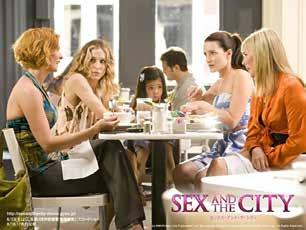
woman have to follow if you don’t want people to judge you in a wrong way. I don’t think the lady boys are having those dressing rules, maybe because they might not have any breasts and sexy nipples to show?
Most of us ladies do behave as expected from us, but on the contrary, many men allow themselves to walk around in very short, tight and unsexy, shining Boxershorts that sometimes show more than you wish to see and a tank T-shirt showing off all their tattoos. TIT, this is Thailand.
Well, what I wanted to say is that there is probably a demand for Series like the two mentioned, Sex and the City and Desperate Housewives.
To all single ladies, frustrated or not, keep on looking for Mr. Right and don’t give up. One day, the Knight might come riding on a horse taking you away, or maybe more truly an elephant, as we are in Thailand.
Stay calm, trustful and sexy ladies!
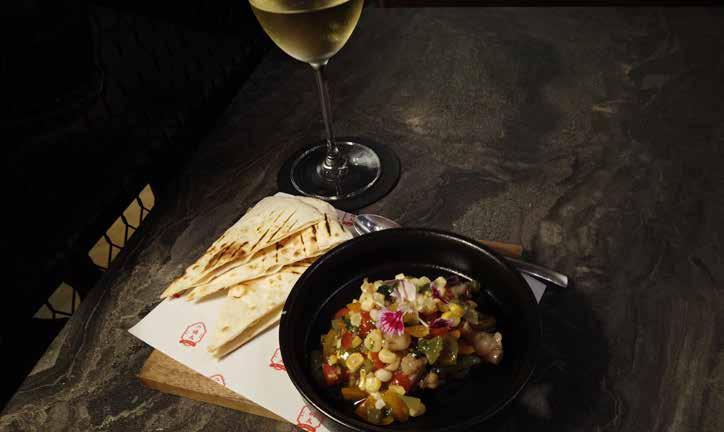
Hygge Dining & Bar in downtown George Town is not what it sounds like to a Nordic visitor. But it does offer good Spanish(!) food.
Text and photos: Joakim Persson
Swedes will be amused by the sight of the name, since its meaning is ’cutting area’ in Swedish, while Danes will get excited; encouraged by the prospect of possibly having found a Danish waterhole in a territory far away from Danish homeland. Because ’hygge’ is an important Danish word and concept.
In this particular case we are referring to Hygge Dining & Bar in downtown George Town, on the island of Penang in west Malaysia.
It is situated really close to George Town’s most visible landmark: Komtar, and situated along one of the heritage districts’ many long roads as part of the Unesco heritage matrix.The sign appears along Jalan Kangsar (58), one of the many narrow roads with the intact low-slung architecture, with European facades, so characteristic for downtown George Town and whatever is left of ’Peranakan’ houses within the Straits peninsula.
However, despite its name, this Hygge is an Asian
contemporary restaurant, though with a strong element of European cuisine; namely Spanish! So while revealing itself as neither run by Danes, nor focused on Danish cuisine, it will nevertheless be a positive dining and drinking experience, regarding anything from lunch to a late night out including having drinks in its adjacent Japanese bar named Er Yi Tai. Expect great food, service, comfort and atmosphere!
Talking to the restaurant hostess, Hygge Dining & Bar, she informs us that it was started by two chefs – one Singaporean and one local. They liked the word ’hygge’ because it means comfort in life, a good environment and good food.
“They can serve good food and create a warm and cosy atmosphere and environment, to enjoy the good things in life with good people,” she said.
“The concept is focused on Spanish food, with a little bit of fusion: our food is not really authentic Spanish food but we mix with flavours from our location. So you
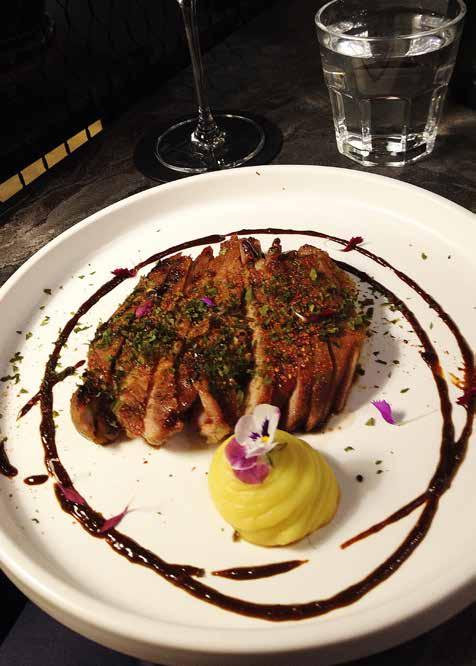
can also try the curry Laksa, which is local food while at the same a little bit Chinese. And then we have Spanish paella and usually our version comes with softer rice, less “burned”, which is how our customers usually want to have it. But the chef will cook it according to the preference of the customer.”
Paella has certainly become more common in five star hotels in Asia in recent years, but overall it is still quite rare to be able to find restaurants serving it, and in the food Mecca of Penang it certainly feels appropriate to find it, as this is a melting pot for all the cuisines of the world, to which many travellers come from far and near to enjoy the destination’s famous food and dining.
A few choices from the menu are: Sakua Kakiage (a wonderful shrimp snack with beetroot and sort of onion taste), Iberico Pluma (grilled Spanish corn-fed pork) and Singaporean Laksa soup.
Do Scandinavians enter this Hygge establishment to find out what it has to offer? The answer is yes: “It
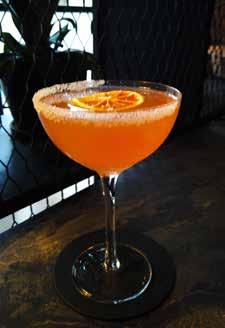
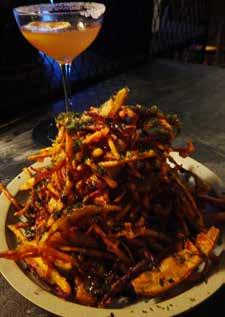
is mostly tourists from Denmark who come in and ask about why we are using this name, and being curious about what it has on offer. Then I explain that we have embraced the concept of ‘hygge’ and they go ‘Wow!’ and are surprised about this.”
“And they do like our curry Laksa and our Spanish seafood paella,” she adds.
Hygge Dining & Bar also, which has a rustic interior, serves a Chef’s tasting menu and is open 11:30 daily until 22:00, while its Japanese bar next door Er Yi Tai – with a selection of Sake and lots of signature cocktails for enthusiasts – is open longer. The two outlets are interconnected and guests can enjoy Hygge’s food also within the bar, which has a much darker, dimly-lit – speakeasy sort of – atmosphere.
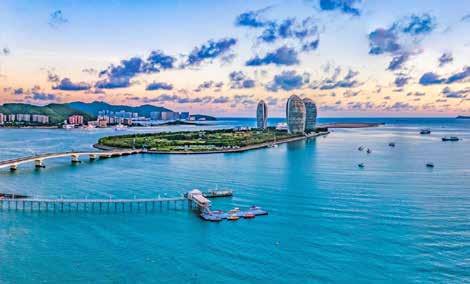
The Finnish Ambassador to China, Leena-Kaisa Mikkola, was a part of an international delegation who did a five day tour of the southern part of China, Hainan.
The Finnish Ambassador recognize the opportunities in the area:
“Hainan is known for its beautiful nature, and the wonderful sea, but more and more also because of its blooming business environment,” she said.
Leena-Kaisa Mikkola especially focused on the cooperation opportunities in Lecheng. A business-delegation of Finnish med-tech companies visited Lecheng in 2020.
The delegation ranged with representatives from 15 countries in Africa, Asia, Oceania and Europe and took place from 22 April 2024 to 26 April 2024.
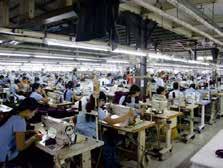
In August 2023 many well-known brand names such as Swedish H&M, Spanish Zara and Irish Primark withdrew their operations in Myanmar, with the goal of not legitimizing Myanmar’s military junta, who seized power in February 2021. Now, eight months later, the Industrial Workers Federation of Myanmar (IWFM) gathered information, which points to the fact that the companies are still operating in Myanmar, and worker complaints have continued to increase.
Myanmar Labour news has registered 455 violations in 2023,
which is nearly three times as many as the 165 registration in the year before. Zara and other companies under the Inditex distribution group were mentioned 33 times and H&M was mentioned 13 times.
Back then, the move to leave the country was greatly supported by Khaing Zar Aung, human rights activist and President IWFM. She claimed that the companies could no-longer pretend to protect workers rights, as the armed war became more violent and the democratic values crumbled. Many suppliers were accused of labor abuses, forced overtime, wage theft, unfair dismissal, gender-based violence and attacks on freedom of association.
Now, Khaing Zar Aung, criticizes the companies’ prolonged withdrawal from Myanmar. According to her, the companies lose their power in leveraging fair working conditions, as the suppliers no-longer have to adhere to the company’s standards,
when they know that the companies will soon be gone.
When confronted, an H&M spokesperson said to Sourcing Journal, that the Swedish company is trying to exit Myanmar in a responsible way, and that they are still very aware of all cases brought to their attention, while simultaneously reducing the number of active manufacturers.
Other companies do not even have the intention to leave Myanmar, like the Danish retailer Bestseller. The company still has agreements with 21 factories in Myanmar and have said that the payments of wages are monitored closely. The reason for not leaving the country is their belief that it would push the garment workers into worse living conditions in an already unstable economy. Therefore, the companies, who are staying argue, that it saves the workers from an even more tremendous human rights catastrophe.
Phuket in Thailand has been selected to host the Global Sustainability Tourism Conference (GSTC) in 2026. The various tourism and sustainability organizations in Thailand feel honored to be a part of the efforts.
It is expected that the conference will have more than 700 participants from approximately 60 countries. The theme of the 2026 GSTC is “Regenerative Tourism”. This fits very well with the three main areas Phuket works with: carbon offsetting, reducing food waste, and becoming a low carbon destination.
The tourism organizations in Thailand are very excited. Both when it comes to the event itself, but also for the future afterward:
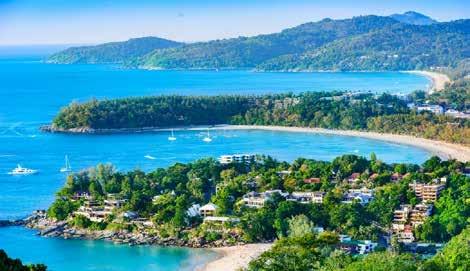
“This hosting of GSTC 2026 could count as the beginning of a journey to sustainable tourism of Phuket, Andaman and Thailand and also being a first practical step to
enhance Phuket to be the global sustainable tourism destination,” says Mr. Bhummikitti Ruktaengam, President of Sustainable Tourism Development Foundation (STDF).
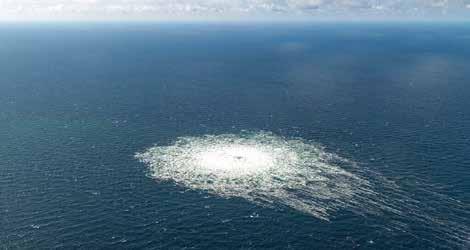
The Swedish Foreign Ministry has rejected China’s proposal for an international probe of the Nord Stream pipeline explosion. The Swedish authorities said that no international investigations are needed, as the Swedish investigation was in accordance with the fundamental principles of independence,
impartiality and the rule of law.
The comment is a response to China’s deputy envoy to the UN, Geng Shuang, who last week called for an international probe of the blast, which destroyed the Nord Stream pipeline in September 2022. He said that countries should work together to find the perpetrators
and to prevent similar occurrences. The explosion of the pipeline has been investigated by both Sweden, Denmark and Germany, but in February Denmark and Sweden ended further investigations. Sweden concluded that the case was not under Swedish jurisdiction and Denmark found that there was “deliberate sabotage” of the pipeline, but weren’t able to provide enough evidence for a legal case.
Russia is also investigating the explosion without the cooperation of the other countries. Allegedly, Moscow has sent more than a dozen requests for legal assistance to both Germany, Finland, Sweden, Denmark and Switzerland and has only received a formal response from Denmark. President of Russia, Vladimir Putin, has previously accused Washington to be the perpetrator.

Singapore Airlines has on Monday 6 May 2024 signed a historic deal to buy 1,000 tons of sustainable jet fuel from Finland’s Neste. According to Neste, the fuel is made from 100 per cent renewable waste and residue materials.The fuel is supposed to cut the amount of greenhouse gas emissions by up
to 80 percent.
The fuel is so-called sustainable aviation fuel (SAF) and is supposed to be blended with conventional fuel and be used by both Singapore Airlines and their budget-friendly partnering company Scoot.
In February, Singapore announced to push airlines departing from the country to use low-carbon fuel in a gradual way from 2026. It is part of Singapore’s industry plans to cut emissions.
In 2026 the airlines will be required to use one percent SAF in their jet fuel and in 2030 the percentage needs to be between 3
and 5 percent. SAF can make up a maximum of 50 percent of a jet fuel mix, but it is also between three and five times more expensive. The Singaporean authorities are therefore aiming at introducing a levy on the tickets.
The fuel will be delivered to Changi Airport in the second quarter and again in the fourth. Neste hopes the cooperation will push for more collaborations across the AsiaPacific region.
The International Civil Aviation Organization has a goal of achieving net zero carbon emissions by 2050 for the entire aviation industry.
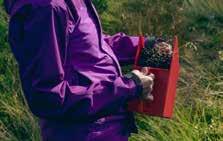
The Finnish Ministry of Economic Affairs and Employment has issued a study on the different economic impacts there might be to solutions to the seasonal berry pickers, which often arrives from Thailand., Cambodia and Myanmar.
There has been a lot of focus on the conditions for foreign berry pickers in Finland over the last 10 years. This resulted in Finland closing admission for Foreign workers from Thailand, Cambodia and Myanmar for the 2024 harvest season. The time was meant to find a solution to the problem.
Now a report has been released explaining the pros and cons of different solutions.
The report has been made by Pellervo Economic Research and the University of Vaasa. They only really see two solutions to the issues with the foreign berry pickers. The workers must either be self employed or have a contract, when they arrive. However, the option of the foreign workers being self-employed doesn’t seem all that realistic: “For pickers who do not know Finnish and come from very different cultural environments working as self-employed persons would be cumbersome and inefficient in terms of costs. In practice, pickers would not be able to fulfill their statutory obligations. The pickers would still be dependent on the wild berry companies, because they would have to conclude contracts with them to sell the berries,” says Henna Busk, Senior Economist at
Pellervo Economic Research.
The solution with a contract seems to be the optimal one. But, it is also the solution, which would make it a bit more expensive for the companies to hire foreign workers. However the study underlines that this change in economy shouldn’t have any significant impact on the government’s general finances.
A key point to the report is that the workers shouldn’t be allowed to arrive on a tourist visa. Also if the contractual solution is chosen, then this would mean that the picking of wild produce would be included in the seasonal workers act.
In general the report calls for political involvement on the subject, as well as it recommends bringing in people from the industry to find the solution.
The changes are intended to take effect for the 2025 harvest season.
Packaging waste from the Norwegian fishing industry in washing up on the Thai beach of Koh Samui. It is estimated that the Norwegian fish exporters produce 65 million Styrofoam boxes every year, and the fact that many end up in Thailand has made big environmental organizations speak out.
“It is a shame that Norwegian companies, which like to appear sustainable, contribute to worsening the plastic pollution in other countries,” secretary general of the WWF World Nature Fund, Karoline Andaur told NRK. “It is not the responsibility of Thai waste workers to clean up after Norwegian seafood exporters.”
The owner of a local sorting center in Koh Samui, Anusit Srisra, is also frustrated, as there are certain challenges in recycling foreign waste.
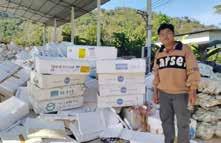
The Styrofoam boxes are reportedly harder to recycle in Thailand due to the wind dispersal and the presence of specific color pigments, which cannot be processed.
Frode Pleym, the Greenpeace Norway leader, also finds the situation highly problematic and stated the following to the Norwegian media NRK:
“I get sick and pissed off by these pictures. It is embarrassing to be Norwegian when these areas
overflow with plastic and Styrofoam packaging with Norwegian flags on it. I hope the government is just as embarrassed, and gets a comprehensive and binding global plastic agreement in place.”
In response the Norwegian Government acknowledged the complexity of the negotiations when it comes to major plastic-producing countries, and the countries which are a affected by the plastic waste.
The Norwegian seafood industry, also acknowledge the problems and has expressed, through the company Grieg Seafood that they will look into certain aspects of the packaging:
“If the color pigment on the boxes is an obstacle to reuse, that is something we have to look at,” said Grieg Seafood’s Kristina Furnes.
The Danish Minister for the Environment Magnus Heunicke has warned the Danes from buying from Chinese webshops such as Temu on 5 May 2024. He claimed many of the products sold on Temu do not follow the regulation standards of the EU and the products can therefore be potentially harmful towards the consumer. Furthermore, he advised Danes against generally buying from non-EU webshops.
The Danish minister commented on the situation only a week after Norway’s Minister of Climate and Environment Andreas Bjelland Eriksen told the Norwegians not to buy their clothes from Temu. He added that the quality of the clothing is bad, and furthermore the webshop leads to an overproduction of goods.
The Danish Consumer Council Tænk has multiple times criticized

Temu for their mass production of goods, which according to them can be harmful to the environment.They also accused Temu of selling products that contain harmful chemicals.
The Italian consumer organization Altroconsumo made a random sample of Temu’s products, where 15 of the 28 tested products did not live up to the European Union’s product safety requirements. Furthermore, Altroconsumo concluded that the products shouldn’t even be
sold in the EU.
In January 2024, Temu sent a written statement to the Danish media TV2, where they stated that they uphold the legislature in the countries they operate in. Additionally, they wrote that the 15 products tested by Altroconsumo would be removed from their website.
Temu has gotten very popular amongst Nordic online shoppers in a short amount of time. In the first quarter of the year, Temu was the third-most popular online shop amongst Danish consumers. Temu operates differently than many european webshops, as they do not produce anything themselves. Instead they order products in different factories. According to a Danish expert, this could be the reason as to why the company does not have full control over its sold products.

There were 21 Bluewater stations at the 2024 Volvo China Open tournament. According to the Bluewater newsletter, this saved more than 350,000 single use plastic bottles from being thrown away.
Bluewater is a Swedish cooperation that specializes in removing impurities in water. The players could therefor fill their re-usable bottles at the stations with clean water. Even with different temperature options or sparkling.
During the event the stations dispensed more than 175,000 liters of water.
“Players, staff, and visitors alike played a key role in redefining sustainable hydration at sporting events by ensuring throwaway plastic water bottles didn’t make the cut at the 2024 Volvo China Open,” said Bluewater founder and CEO Bengt Rittri.
The European Union (EU) and United Nations (UN) suddenly decided to reschedule the launch of their “PROTECT” project, which was set to be launched on May 3 2024, in Phnom Penh, Cambodia.
The decision to reschedule has been made after several voices have expressed confusion as to the venue of the launch.
The “PROTECT” project aims to help prevent violence against women and children, human trafficking and migrant smuggling, which has been a rising concern in Cambodia. The spot which had been chosen for the launch was a hotel owned by L.Y.P. Group, a conglomerate that has been suspected of being involved in human trafficking.
The owner and Cambodian senator, Ly Yong Phat, himself hasn’t been charged with human trafficking. However, a casino he owns has
been raided twice, where authorities have rescued people who claim they had been forced to work there. The people who were rescued stated that they were threatened and subjected to electrical shock if they didn’t meet the daily targets.
50 people were rescued after
the latest raid of the Casino, 19 of them were Thai.
This being the recent history of the L.Y.P. Group, is why the EU and UN has decided to delay their launch, until they find a different venue.
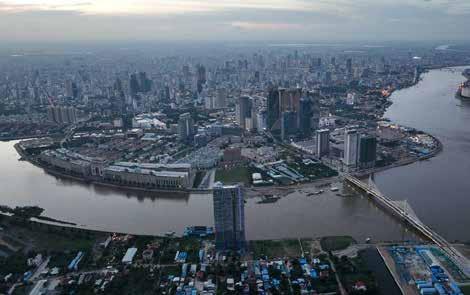
The Thai power company named Global Power Synergy Public Company Limited (GPSC) has signed a memorandum of understanding (MoU) with the Danish company Seaborg Technologies.
The agreement is about Thailand potentially deploying Seaborg’s compact molten salt reactor (CMSR) floating “power barge”. Under the MoU it is the plan that Seaborg and GPSC long term can use the CMSR power barge as a means to make a transition to net-zero.
At the moment Thailand has no commercial nuclear plants, however the US stated in 2022 that it was planning to help the Thai government build facilities for advanced nuclear reactor technologies.
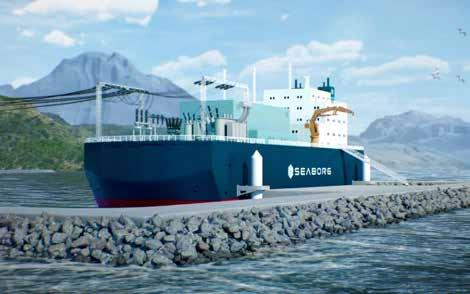
One of the purposes of the floating nuclear plants is to create opportunities to provide power for isolated regions. Power can be cru-
cial when it comes to for instance the mining industry, armed forces or disaster relief operations.
From January to March in 2024, China imported half the amount of pork, when compared to the
same period last year.This influenced many exporting countries, and Denmark experienced one of the most
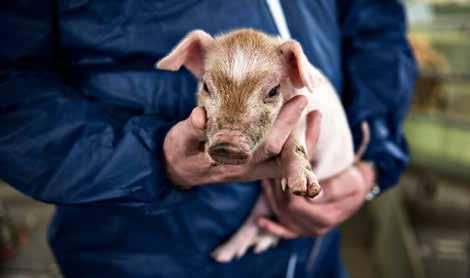
significant losses, as sales dropped by 25 percent to 27,440 tons.
The Danish Agriculture & Food Council (L&F) analyzed the trade data and concluded that all suppliers worldwide of fresh and frozen pork have felt the impact of the decline of Chinese buyers. Overall, the Chinese import of pork has decreased by 33,8 percent to 530,000 tons. This includes by-products.
Spain was previously the biggest exporter, and the country has experienced a 49,3 percent decrease in sales to China during the first quarter of the year. Brazil has now become the top exporter, nonetheless the export has dropped 42 percent, when measured by quantity.
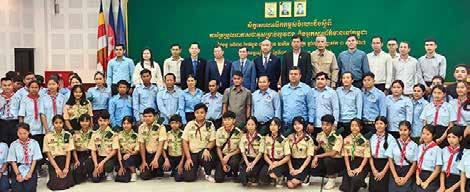
The Cambodian Ministry of Environment will move into phase four of the Cambodia Climate Change Alliance (CCCA) following the success of the first, second and third phase, which aim at responding to climate change.The third phase of CCCA is supported
by Sweden, the European Union, the Cambodian government and the United Nations Development Programme (UNDP). Phase three was implemented in July 2019 and will end in June 2024.
The decision to implement phase three was published at a
workshop at Siem Reap provincial hall, which was organized by Siem Reap Provincial Administration and Ministry of Environment.
The secretary of state at the ministry of environment Chuop Paris said at the event, that the focus will be on helping farmers adapt to climate change as Cambodia is especially vulnerable to climate factors, such as storms, floods, droughts and rising sea levels. He furthermore emphasizes that Cambodia is a country suffering from climate change, rather than being a significant contributor to the global issue.
The first phase of CCCA was active in 2010-2014 and the second phase in 2014-2019.
Malaysian swimmers are gaining valuable insights from training with Danish stars, Rasmus Nickelsen and Thea Blomsterberg, after the new Malaysian national coach and former Danish national coach, Eric Anderson, arranged for them to come to Malaysia.
According to the coach, the foreign athletes can bring a lot to the training environment as it will show the Malaysian athletes what is possible in their own careers.
21-year old Rasmus Nickelsen has won gold at the 2019 European Youth Olympic Festival in 100m butterfly and is the Danish national record holder in 50m and 100m butterfly and will train in Malaysia to qualify for the Paris 2024 Olympics.
22-year old Thea Blomsterberg was last year ranked fifth in the
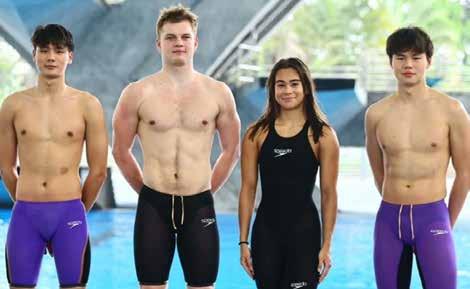
world in 200m breaststroke. She went from number 85 to number 5 in two and a half years. Thea Blomsterberg has already qualified for the Paris Olympics, where she will travel alongside the Malaysian team.
Both young swimmers are supported by Denmark financially and conceptually. According to Eric Anderson, he is glad for the support from Malaysia Aquatics and Danish Swimming Federation.
The Indonesian Ministry of Health and Team Sweden has launched the SwedenIndonesia Sustainability Partnership Health Services platform also known as SISP Healthcare Platform.
The idea for this new concept was brought by the Health Minister of Indonesia, Budi Gunadi Sadikin as she spoke at the Swedish ambassador’s house in Jakarta on 26 April 2024.
There she underlined that the Indonesian people are living longer, and therefore need more medical care. She mentions this empathizing what a good investment the healthcare system would be.
The Swedish ambassador, Daniel Blockert, also saw the potential in further investment in Indonesia:
“From what I heard from Swedish companies, there is a lot of optimism because reforms have been made, and reforms are on the way. Businesses see this as a big step in the right direction. With this market, these possibilities, and a large number of universities here, I would be very surprised if Swedish investment
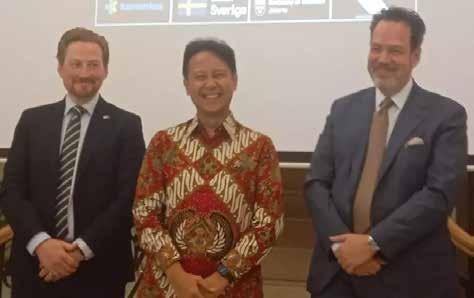
in Indonesia’s healthcare sector does not increase in the coming years,” he said to the media Jakarta Globe.
The British-Swedish pharmaceutical company AstraZeneca was also present at the ambassador’s house during the discussion, along with other company representatives. They state that any plan to further expansion in Indonesia, as they already have a packaging plant in Chikarang, would have to be a long-term, well-deliberated decision.
On 27 April 2024 the SISP Healthcare Platform was born. According to Budi Gunadi Sadikin, the health Minister of Indonesia, the platform will show that stakeholders in Indonesia and Sweden can collaborate in the Health Sector.
The Ambassador of Sweden, Daniel Blockert, is also very happy with the new platform, as he states how the platform marks an important moment in the long-term partnership between the two countries.

The popular musical “Mamma Mia” is returning to Shanghai after 17 years . The musical is especially known for featuring a dozen songs by the Swedish musical
group ABBA.
The last time the original West end musical visited China was in 2007, and it was a great success, according to producer Nick Grace, who was present at the last trip as well:
“China had a very new market for musicals that time,” he says to the media Shine and continues: “We have been trying to get back here in the last five years, and got postponed twice due to the COVID. This round of performances will be
exactly the same shows in London and what we have brought here 17 years ago.”
The musical has been adapted into 16 languages, and has been running since 1999. This means that it is celebrating its 25’th anniversary this year. China is the first stop on its anniversary world tour.
The show will perform in Shanghai, Hangzhou, Beijing, Nanjing, Zhengzhou, Zhuhai, Shenzhen and Hong Kong. The first show appeared in May.




